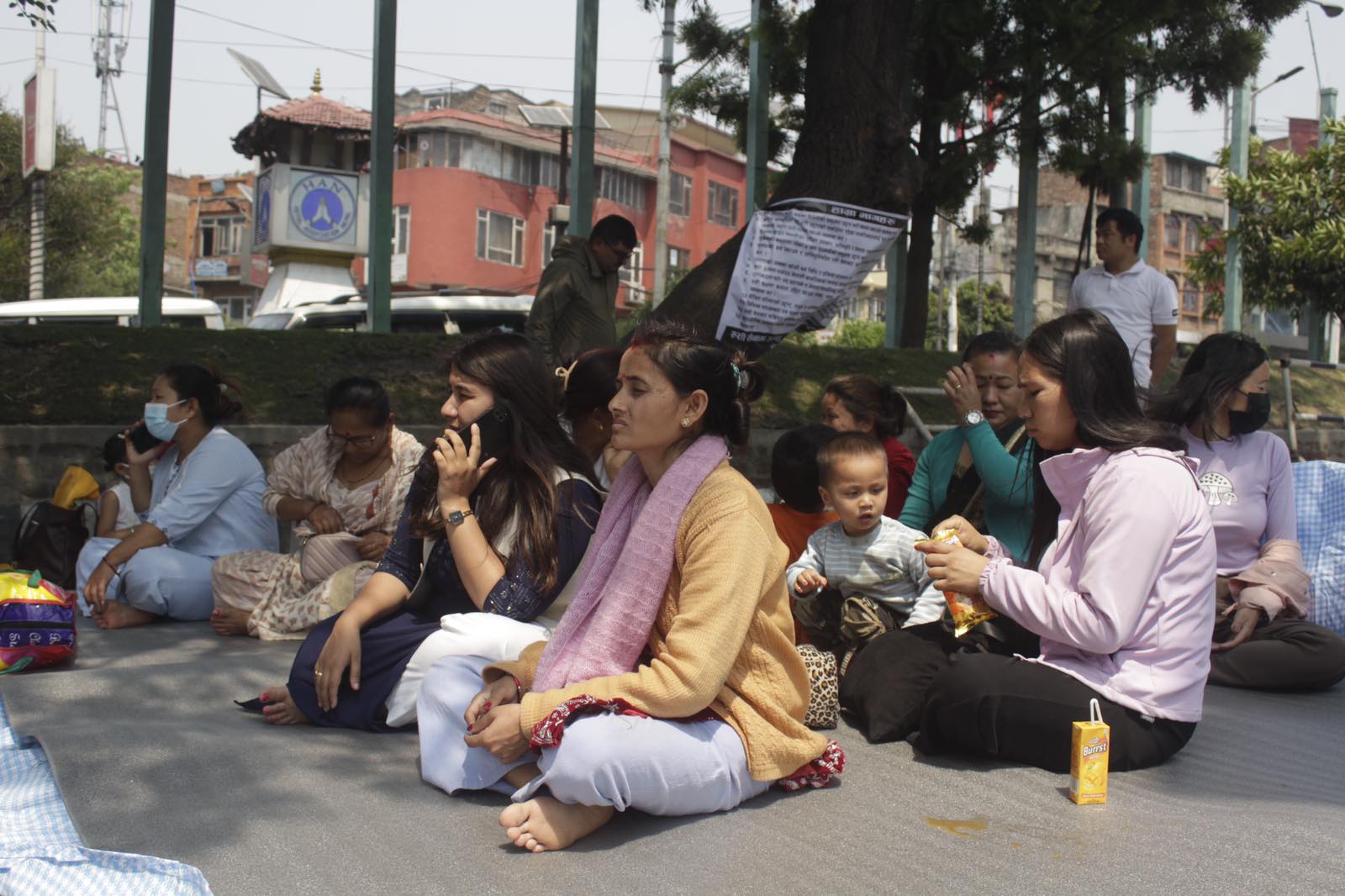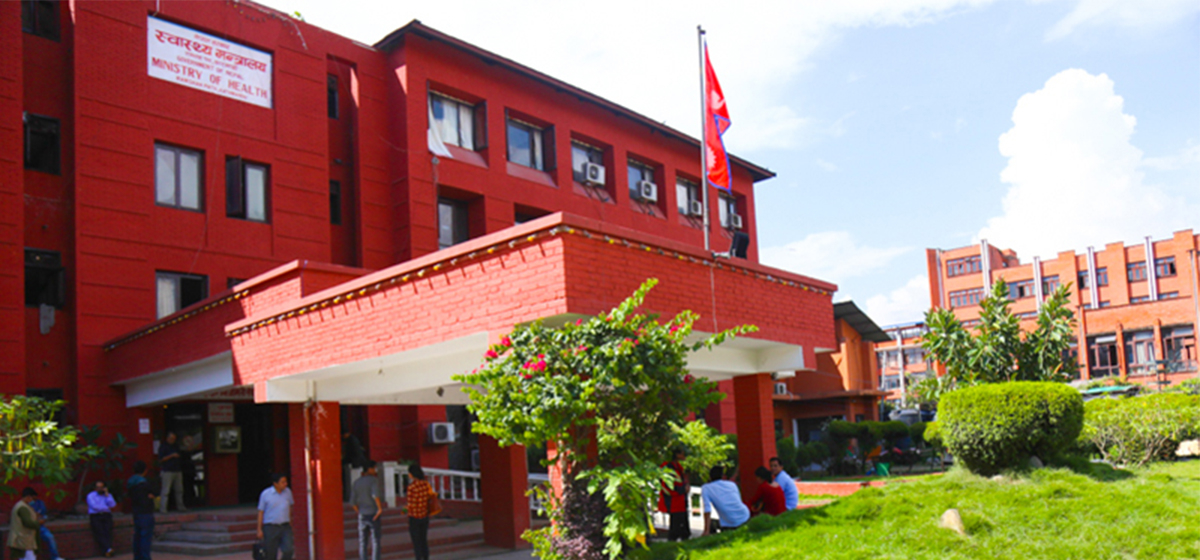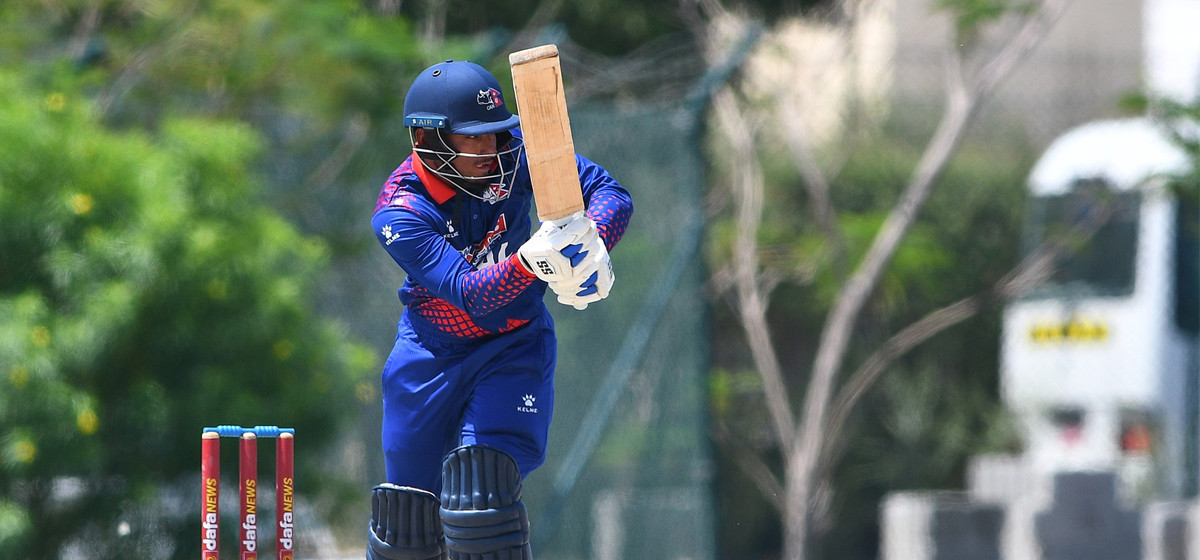
OR

Gail Marzetti/ Pukar Malla
Marzetti is Head of DFID, Nepal and Malla is founder and Executive Director, Daayitwanews@myrepublica.com
More from Author
In Surkhet, we recently met ‘Sita,’ a young woman running a successful printing business, one that she has established and grown, overcoming numerous obstacles in the process. She shared a story about going to sell a piece of her own land and transfer ownership, when a local official asked her for her husband’s approval and was clearly worried about what she might do with the money. He asked her if she drank alcohol. When she bought more land with the money, the man selling it to her was not submitted to a similar barrage of questions and doubt. Despite good laws for promoting women’s economic empowerment, implementing them and changing perceptions and behaviors remains a challenge.
In September last year, the United Nations released a report from its High Level Panel on Women’s Economic Empowerment. The report brought global attention to the need for women to have their own money and make their own decisions. Such a global report can be a valuable advocacy resource but it also begs the question: what does it mean for Nepal?
Over the past four months Daayitwa, with support from DFID, has been taking the UN report on the road to collect stories and to test the seven listed action areas in the report right across Nepal. In Solukhumbu, Rupandehi, Surkhet and Kathmandu, we asked:
• What are the stereotypes and societal challenges that affect women’s participation in the economy?
• Do laws and policies provide women with a level playing field?
• How do women’s household care responsibilities affect their choices and opportunities?
• Are women able to build and control their assets?
• How are employers supporting and encouraging women in the workplace?
• Is the public sector encouraging women to join and grow in the civil service and prefer women-owned businesses as suppliers in procurement?
• Is there a healthy eco-system of organisations and institutions that are advancing women’s economic rights?
As expected, there are no easy answers to these questions. Through this journey, a few principles have become clear. If we take them seriously, we need to shift our perspective and do development differently.
First, women’s economic empowerment is more than just women’s empowerment. It is not just a ‘nice to have’. It benefits everyone. Enabling 50 percent of the population to build and control their own assets is critical for an inclusive and prosperous Nepal. Speaking at a recent event hosted by Daayitwa and DFID, the Honourable Supreme Court Justice Sapana Pradhan Malla stressed the importance of work at all levels to support women’s economic empowerment, underscoring the intrinsic linkage between women’s ability to access and control resources and their ability to access justice.
It is not enough to have some of the region’s most progressive laws and provisions on gender. It is important to ensure that these laws are implemented in a way that truly empowers women. For instance, tax incentives that encourage female property ownership have been successful in numbers but significant obstacles remain for these land-owning women to use their land as they see fit.
It is not enough to say that women need ‘skills and credit’ and to offer standardized approaches to microcredit and tailoring courses across the country. If women are going to start businesses, they need right-fit solutions that provide them with contextual skills and financial products so that they can connect better with local markets.
It is not enough to build the capability of women and leave out other stakeholders, particularly those that hold power and influence such as household decision-makers, banks, business associations, cooperatives, and government officials. For instance, across the districts we found that women who had supportive husbands or fathers took more risks and were able to grow their businesses. More can be done to create a broader platform to support women’s economic empowerment, including actively engaging men as champions.
In order to enable women to be more powerful and less poor in Nepal, we need to focus on connecting women with Nepal’s economic growth. We need to better understand the growth sectors in Nepal’s economy and identify ways for women to participate actively in these sectors. How can women in Nepal make the most of the growth in hydropower, construction, agro-businesses, and tourism? For those women lucky enough to have formal employment, how can they rise through the ranks of senior management and leadership?
We need to be more proactive in identifying true champions of women’s economic empowerment in Nepal and build a strong coalition to support its genuine progress. We need a national conversation on the issues and understand our respective roles in addressing them. How can civil society organizations like Daayitwa support this movement? How can development partners like DFID demonstrate their commitment? How can we invest in the next generation of economically empowered Nepali women to be the role models for the future? What can each one of us do so that ‘Sita’ and others like her are truly empowered to take control of their own lives?
Marzetti is Head of DFID, Nepal and Malla is Founder and Executive Director, Daayitwa
You May Like This

Married women prefer their friends to their husbands: Study
Getting married is often pegged as one of the happiest day of a person's life, as you have finally found... Read More...

App to assist colleges with their schedule
KATHMANDU, Feb 8: Routinizer is an app designed by 8byte Creative Studio, a software company in Kathmandu. The app can be... Read More...

Couple buried after their house collapses
RAMPUR (Palpa), July 18: A couple sustained injures when their house at Rampur Gejha in Rampur Municipality-14 Palpa district collapsed due... Read More...

Just In
- In Pictures: Families of Nepalis in Russian Army begin hunger strike
- New book by Ambassador K V Rajan and Atul K Thakur explores complexities of India-Nepal relations
- Health ministry warns of taking action against individuals circulating misleading advertisements about health insurance
- UAE secures spot in ACC Premier Cup final, defeating Nepal by six wickets
- NC to boycott Gandaki Province Assembly, submits letter to Speaker
- 850 grams of gold seized from Indian national at TIA
- Rupandehi District Court orders to release Dipesh Pun on a bail of Rs 400,000
- Teachers’ union challenges Education Minister Shrestha's policy on political affiliation














_20240311121839.jpg)

Leave A Comment